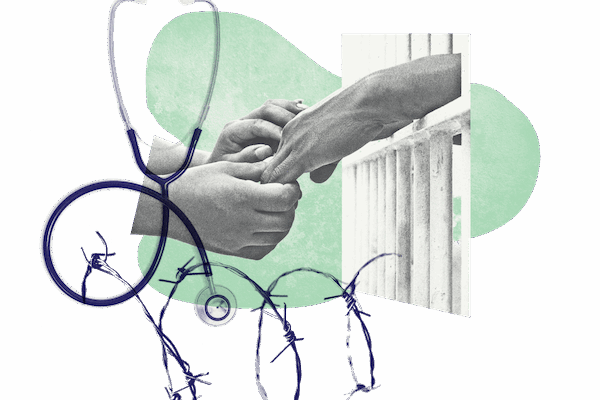The ACLU of Maine is urging the Department of Health and Human Services (DHHS) and the Maine Center for Disease Control and Prevention (CDC) to prioritize prisons, jails and detention facilities in its COVID-19 vaccine distribution plan.
In a letter sent to DHHS and the CDC today, the ACLU argues that incarcerated people, immigration detainees and prison and jail staff should be included in Phase 1 of the vaccine distribution plan. The state has not yet determined which phase of the plan to include incarcerated people, Maine CDC director Dr. Nirav Shah told the Permanent Commission on the Status of Racial, Indigenous and Maine Tribal Populations.
“Maine has a moral and legal obligation to provide adequate health care to people who are incarcerated, which includes ensuring that they are vaccinated against COVID-19,” said Meagan Sway, policy director of the ACLU of Maine. “They live in crowded facilities where social distancing is not possible, and many incarcerated people are medically vulnerable. They face a greater risk of exposure to COVID-19.”
Sway continued, “But the risk is not just to people who are incarcerated. Prioritizing jails and prisons helps to keep the larger community safe as well. Prison and jail staff deserve to have a safe work environment. They shouldn’t worry that when they go home from work, they might bring the virus to their families, and the communities where they live.”
There is growing consensus among health care experts and at least eleven states and one territory that incarcerated people should be prioritized in Phase 1 of vaccine distribution plans.
“We hope Maine joins this movement,” Sway said. “Incarcerated people have a constitutional right to adequate medical care.”
In Maine, incarcerated individuals have an infection rate that is nearly 500 percent higher than the state’s infection rate as a whole.
“We know that decision about allocating and distributing limited COVID-19 vaccines will be complex and difficult,” Sway said. “But Maine must make these decisions based on the public health evidence, and prioritize access for those communities that have been disproportionately affected by the disease.”
Documents
Stay Informed
Sign up to be the first to hear about how to take action.
By completing this form, I agree to receive occasional emails per the terms of the ACLU’s privacy statement.
By completing this form, I agree to receive occasional emails per the terms of the ACLU’s privacy statement.

